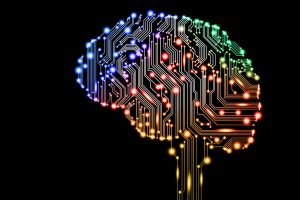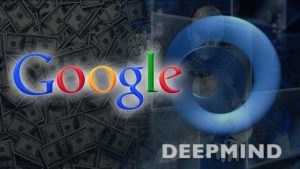
Google DeepMind AI project is starting to pay off handsomely.
The British artificial intelligence company DeepMind, founded in 2010, which was acquired by Google in 2014 (or more appropriately, is now owned by Alphabet Inc.) has already started to pay its dividends as it has helped the parent company to reduce its power bills.
Google DeepMind has achieved that feat through the use of more streamlined data centers that form the backbone of the parent company. A parent company that has expanded its business at an unprecedented pace in its quest to bring more users to the online world and develop more mobile apps.
Google DeepMind AI made headlines this year when it beat human players (actually European champions) on an abstract strategy board game (played by two players against each other) called Go. The main objective of the game is to occupy (or surround) more territory on the board than the opposing player.
Google DeepMind AI outplayed all its opponents and hence became the first AI computer program to have beaten human professional players.
For those rejoicing the fact that Go champions were put to the sword instead of some chess masters (like Kasparov), it would be relevant to point out that Go strategy game is considered much more difficult for computers to excel at as it is vastly more complex than Chess.
That is also the reason why earlier AI technologies such as brute force found it prohibitively difficult to compete against human players on Go strategy game.
But Google apparently isn’t interested in beating human professional players at strategy games. Google’s plans seem much more practical as the tech giant has used DeepMind AI project to save itself electricity bills among other things.
And it seems like the project is starting to pay off handsomely. Google DeepMind’s CEO, Demis Hassabis, in an earlier interview with Bloomberg, told reporters that Google DeepMind AI has helped its parent company cut its power use by several percentage points.
He also stated that it was possible only due to the advanced use of equipment (cooling systems and windows amongst many others) by Google DeepMind AI program.
In other words, Google DeepMind has made Google data centers extra-smart and extra-efficient in their use of electricity.
The exact amount of energy that Google DeepMind AI project’s code helped to save is still unknown for a variety of reasons. One of them being Google’s policy of extreme privacy when it comes to its own company numbers and figures.

Google DeepMind AI comprehensively beat human professional Go players
But since Google uses about 4,402,836 MWh of energy per year (the figure is from 2014 and is likely to have grown further since Google has expanded its operations by taking on new projects every single year), even a small percentage reduction in the amount of electricity consumed by the company, would mean savings that may well go into hundreds of millions of dollars if not more.
Google’s acquisition of DeepMind in 2014 (which was then just an artificial intelligence startup) for $400 million was considered as slightly expensive by most technology authority figures because of the relatively small size of the company from London.
But now, the project is likely to pay for itself in the coming years and might even bring in a ton of revenue for Google long after that as well.
Google DeepMind AI will continue to improve the inner workings of Google’s data centers and that is a strong indication that it will further cut power bills in the near future, which would save Google even more money.
It has been revealed that Google DeepMind AI is also smart enough to understand that there are still gaps in its analysis of avenues to save energy and it might be able to recommend Google to install more sensors in order to improve the smart code’s productiveness.
Though it has to be said that software can only limit power consumption to a certain extent. After which Google will have to invest in advanced hardware to lower its power consumption further.
The success of Google DeepMind AI in cutting Google power bills has prompted experts to agree that, what looked like an expensive acquisition a couple of years ago, might turn out to be a relatively small investment that could provide huge results not just for Google but (with some contributions in renewable energy sector) also for the environment.
Lower amount of energy consumption generally means less carbon pumped into the atmosphere. As it turns out, Google in its bid to make more profits might actually help the world reduce its carbon emissions.
But energy efficiency doesn’t even scratch the surface of what Google DeepMind AI is capable of. Google DeepMind AI is an extremely flexible piece of software that is truly one of its kind.
It has been working with other companies on detecting eye diseases and, as mentioned before, forcing GO human players to improve themselves in order to compete with it.
In Google’s point of view, Google DeepMind AI is also performing important backstage tasks that don’t often get much spotlight but nevertheless could make massive differences in people’s lives as far as their regular activities are concerned.

Is Google intentionally monopolizing the technology market?
Observers are already calling on Google to work with power plant and power grid companies along with distributors to help them modernize their systems in order to save more energy.
And if reports are to be believed, Google is likely to partner up with its AI division on many other tasks where humans are not particularly efficient.
Detractors have voiced their opinions and have suggested that Google’s foray into the AI industry is further proof of the company getting too big for its own good.
As a counterpoint to these fears, one could easily assert that if Google‘s work (such as its Google DeepMind AI project) is helping humanity as a whole then it’s of no consequence if the company is forming a monopoly over advanced technologies.
If anything, it is incumbent on other players in the AI industry to step up their game and come up with programs that provide better or more efficient solutions to the problems humanity is facing today or will face in the near future.
Stay tuned for further news on Google’s (and its promising Artificial Intelligence division’s) future collaborative projects.
- How to Pair a Vizio TV to Bluetooth Speakers – Quick and Easy - March 28, 2022
- How to Update iPhone Without WiFi - March 17, 2022
- What Is the Need for Businesses to Invest in Hiring for Java Development? - March 14, 2022